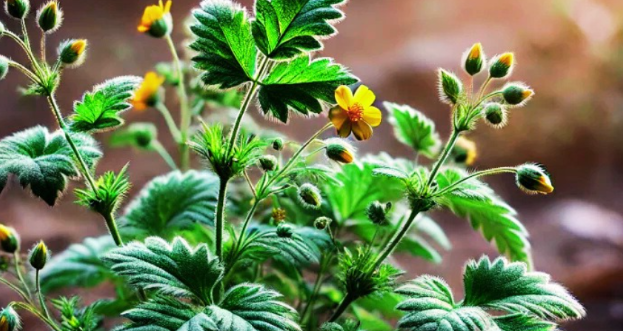We often think of stubborn grasses—like crabgrass, Bermuda grass, or Johnson grass—as nothing more than irritating invaders in our lawns and gardens. But what if we told you that these tough little plants are hiding some serious benefits? With the right perspective, what once seemed like a nuisance can actually be an incredibly valuable resource.
Let’s dive into the many ways stubborn grasses can be repurposed to serve your garden, your animals, your home, and even the planet.
🌿 Nature’s Secret Weapon for Erosion Control
Their roots may be hard to dig out, but that’s exactly why they’re so great at stabilizing soil. Stubborn grasses grow deep, dense root systems that hold onto the earth like a natural net. On slopes or areas prone to erosion, planting grasses like Bermuda or crabgrass can prevent soil from washing away—even during heavy rains. This makes them especially useful for farmers or gardeners managing loose, sandy ground.
🐄 Nutritious Feed for Livestock
Believe it or not, many so-called “invasive” grasses are rich in nutrients and make excellent fodder for livestock. Bermuda and Johnson grass, for example, can be harvested and dried to feed cattle, goats, and sheep. Instead of spending extra on commercial feed, farmers can take advantage of these naturally resilient grasses growing in unused fields.
♻️ Turn Lawn Trouble into Green Mulch
If your lawn is being overtaken by stubborn grass, don’t yank it out and toss it—cut it down and put it to work. Layer the clippings around your plants as a natural mulch. Not only will it help suppress weeds, but it’ll also retain moisture and enrich the soil as it breaks down. It’s free, sustainable, and beneficial for your garden’s health.
🌱 Compost Gold
Because they’re high in nitrogen, stubborn grass clippings are ideal for composting. Mixed with dry “brown” materials like leaves or cardboard, they help speed up decomposition and create nutrient-rich compost. Just make sure the pile gets hot enough to destroy any lingering seeds—unless you want surprise sprouts later!
🛡️ Natural Weed Control (Yes, Really!)
Some stubborn grasses have allelopathic properties—they release chemicals that prevent other plants from growing nearby. While this is often a headache in gardens, it can be helpful when used strategically. For instance, you can plant allelopathic varieties like Bermuda grass around the borders of vegetable gardens to naturally keep weeds at bay—no harsh herbicides required.
🔋 A Green Source of Energy
Did you know some of these grasses are being used to make renewable fuels? Switchgrass, for example, is a prime candidate for bioethanol production. It grows fast, requires little maintenance, and can be cultivated on land that’s otherwise hard to farm. For areas with abundant wild grass growth, it’s a step toward cleaner, greener energy.
🧺 Crafty Uses in Traditional Handicrafts
In many cultures, stubborn grasses are prized for their durability and are woven into mats, baskets, and even hats. Once dried, grasses like Bermuda become surprisingly strong and flexible. Repurposing grass for crafts isn’t just environmentally friendly—it’s also a beautiful way to support cultural heritage and handmade goods.
🌾 Fill in Bare Spots Naturally
Got patchy spots in your lawn? Hardy grasses like crabgrass or Bermuda might just be the low-cost fix you need. While they may not perfectly match your turf at first, these fast-spreading grasses can fill gaps quickly, resist foot traffic, and prevent soil erosion—all without buying extra seed.
🐦 Welcoming Wildlife to Your Yard
Leaving patches of stubborn grass alone can support your local ecosystem. The seeds feed birds, while the dense blades offer cover for small animals and insects. It’s a simple way to promote biodiversity and turn part of your yard into a mini wildlife refuge.
🌿 Ancient Uses in Herbal Remedies
In traditional healing practices, certain persistent grasses have been used medicinally for generations.
- Bermuda Grass has been used in Ayurveda to treat wounds and skin issues.
- Lemongrass—though not technically “stubborn”—shares similar hardiness and offers anti-inflammatory and digestive benefits.
With a little research, these plants may have small but meaningful roles in home remedies.
🌍 Final Thoughts: A Shift in Perspective
What if, instead of fighting these grasses, we started working with them? Their resilience, fast growth, and surprising utility make them perfect candidates for eco-conscious solutions. Whether it’s supporting soil, feeding livestock, or even creating energy, stubborn grass deserves a second look.
So next time you see a patch of crabgrass popping up, maybe—just maybe—pause before pulling it. With a bit of creativity, you might just find it’s more friend than foe.

